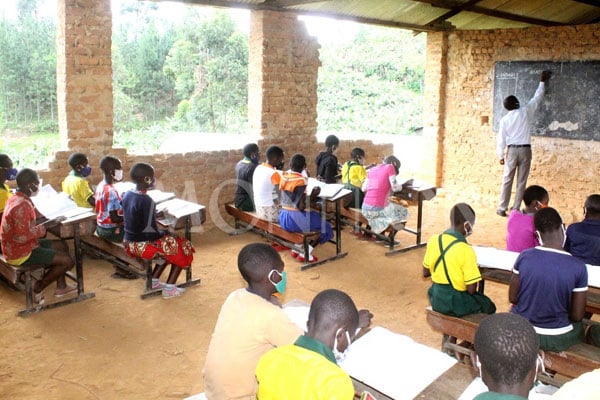Teachers appeal for govt scholarships to pursue degrees

The Chairperson Uganda National Teachers’ Union (UNATU) Jinja Branch, Ms Aisha Watongola, addresses teachers during the national celebrations held at Namutumba Upper Primary School in Namutumba District in 2023. PHOTO | RONALD SEEBE
What you need to know:
- Many teachers in Namutumba express support for the policy, emphasising the importance of well-qualified educators at the foundational level. However, they cite financial barriers to obtaining degrees.
Teachers in Namutumba District are appealing to the government for scholarships to pursue degrees.
In 2019, the government introduced a transformative teacher policy that phased out lower qualifications, mandating that all teachers, from nursery to primary levels, hold a Bachelor's degree. Teachers were given a 10-year grace period to meet this requirement, aiming for full compliance by 2030.
However, the implementation has been hampered by Covid-19, delays in necessary legislation, and the establishment of key institutions like the Teacher Council and the Uganda National Institute of Teacher Education.
Many teachers in Namutumba express support for the policy, emphasising the importance of well-qualified educators at the foundational level. However, they cite financial barriers to obtaining degrees.
Mr Wilber Isiko, a teacher, noted that many colleagues are burdened with loans and insufficient income to support their families and fund their university enrollment.
“This policy is not about having the minimum requirement of a Bachelor’s degree, but it means investing money which we do not have,” Mr Isiko said in an interview on Tuesday, adding that whereas competence is a “critical success factor”, it comes with costs.
Ms Robina Namugema, also a teacher, echoed these concerns, stating that while the proposal aims to elevate teacher qualifications, it fails to address the issue of uniform salaries for all teachers, regardless of their teaching level. She urged the government to provide scholarships, warning that without financial support, many teachers may leave the profession.
Mr Wilberforce Kigenyi suggested that if scholarships are not available, the government should enroll all teachers in government-aided universities and set reasonable tuition fees, as private universities charge exorbitant amounts.
Ms Logose Nangobi highlighted the difficulties faced by teachers with only certificates, noting that older teachers, particularly those aged 47 to 50, are reluctant to pursue degrees due to financial responsibilities, including tuition for their own children.
Ms Aisha Watongola, chairperson of the Uganda National Teachers’ Union (UNATU) Jinja Branch, emphasised the need for higher qualifications to enhance the teaching profession. She urged the government to consider scholarships for teachers as part of its reforms in teacher education.
“We know the government loves teachers and recognises their contribution to the country. Teachers are ready to move the way the government wants, but cannot afford paying university fees given the responsibilities they hold in their families,” Ms Watongola added.
[email protected]



